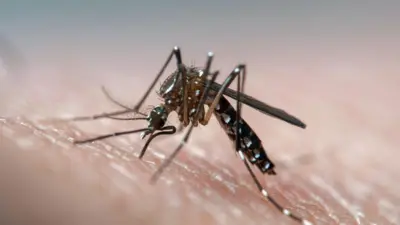We've updated our Privacy and Cookies Policy
We've made some important changes to our Privacy and Cookies Policy and we want you to know what this means for you and your data.
Drastic and draconian - NI's new economic 'Troubles'
Northern Ireland is in line for a round of severe spending cuts which could lead to years of economic pain.
Already, Stormont ministers have been told to plan for cutbacks of at least 5% in their budgets for next year alone.
91ČČąŹ Northern Ireland Business Correspondent Kevin Magee outlines what we can expect.
"Drastic". "Draconian". "Swingeing". Those are just some of the words used to describe the scale of public spending cuts.
No-one will be immune from them - we are all being forced to help pay for the huge mountain of debt accumulated during the recession and the banking crisis.
If we do not, the Coalition government has warned, then the price will be even higher - the economic stability of the UK is at stake.
Victor Hewitt is the director of the Economic Research Institute of Northern Ireland, a think tank set up to offer advice on the regional economy.
Choices
Ironically, the institute's very existence is under threat because of cutbacks. So Mr Hewitt knows what he is talking about when he says there is no escaping the axe.
"Essentially, you are talking about reversing the course of the public expenditure system in a very short space of time," he said.
"In our case, public expenditure in Northern Ireland has basically doubled in the last decade.
"Now, the train is going to go into reverse and that is going to be very painful indeed."
Economics is all about making choices and the executive at Stormont will have to make some key decisions.
The next wave of cuts will have to be made on the back of budgets that are already very tight. Government departments have been told to save almost ÂŁ500m.
Experts predict Northern Ireland's block grant of about ÂŁ10bn a year could be slashed by another ÂŁ1.5bn.
Reduction
Northern Ireland's First Minister, Peter Robinson, thinks that is an accurate figure.
"By the end of the period we would reckon that our budget will have reduced by about that amount," he said.
It is the equivalent of up to 15% of Northern Ireland's overall spend over the next four years.
When set against the size of the block grant - worked out by the so-called Barnett Formula - the figure could be even higher.
"If we take what is happening in government departments in the UK as a whole, that whenever it gets into the Barnett formula for Northern Ireland, it is likely to lead to a reduction in our expenditure of somewhere in the region of 20 to 25%," Mr Robinson added.
All agree that new capital projects will be worst hit.
So what departments, if any, should be protected from the cuts? Health Minister Michael McGimpsey is not in any doubt.
Distress
"If people are in pain and distress, we have a duty and obligation as a government to look after them," he said.
"As far as I am concerned, and the people of England, Scotland and Wales and Northern Ireland are concerned, health should be ringfenced."
A popular choice perhaps, but throwing a fence around health would double the pain for other government departments.
What will come under close scrutiny are items that the executive has placed on its shopping list in recent years.
Free prescriptions, the Civil Service equal pay claim, the deferment of water charges, and now the latest addition to the list, potential help for investors at the Presbyterian Mutual Society are all at risk.
These are all extras the executive has decided to pay for even though, as Victor Hewitt explains, the money it gets the Treasury in London is not strictly earmarked for these projects.
"The issue is that we are receiving nothing by way of funding formulas for those things.
"They are unfunded. Thus, every penny that goes on those has to be taken from other programmes.
"The real cost of maintaining the situation in water, for example, is that you have ÂŁ200m less each year to spend on other things including health," he said.
About half of Northern Ireland's public expenditure bill goes on wages, making pay an obvious target.
But some public sector workers who spoke to the 91ČČąŹ said they could not afford to pay for other people's mistakes.
Kerrin Joiner takes home ÂŁ1,309 a month after 21 years' service.
"The banks have been bailed out by billions of pounds and the public service is the one that has to be cut because of it," he said.
"I don't think that is exactly how the country should be run. "
Paddy Hamill is worried about the future. He gets ÂŁ1,265 a month after 12 years' service.
"There is talk about a pay freeze but effectively it is a pay cut with the price of everything going up.
"There would be question marks over whether I could pay our mortgage."
The actual extent of the cuts will not be known until next month.
But one thing is increasingly clear.
We are entering a period of austerity and it could take a ten-year downhill dip before public spending recovers to its current levels.
Swingeing indeed.
Top Stories
More to explore
Most read
Content is not available








